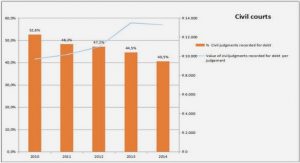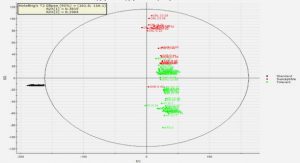Get Complete Project Material File(s) Now! »
Gaps in the Literature
In this section, having covered the practical and academic rationale for this study, further justification, in terms of need for such research, is documented. A serious deficiency in the motivation literature is the relatively little attention that has been given to differences related to socio-cultural backgrounds (Maehr,and Meyer 1997, p. 371). Nelson, O’Mara, McInerney and Dowson (2006, p. 400), while acknowledging that there has been much research on “psychological constructs relating to academic engagement and achievement in a cross-cultured setting”, feel that they have “rarely been extended to the developing world.”
They further point out “the processes by which students from majority, indigenous and under-developed nations are motivated in school are unclear”. In this study, the Rahimi, F. (2010), ICT, UL 24 focus has been on the majority, indigenous and under-developed with the aim of finding psychological constructs that result in academic achievement.
Blackmore, J., Hardcastle, L., Bamblett, E. and Owens, J. (2003, p.iii), as part of an Australian study, concluded that “while ICT offers considerable possibilities, the ways in which ICT improve learning outcomes has not yet been fully investigated, particularly in the case of students who are disadvantaged.”
This is precisely what this study aims to accomplish. In her recommendation, Van der Merwe (2004, p. 339) suggests further research on “how the use of ICTs can promote diversity in terms of teaching and learning styles.” This study aimed at finding students’ special cultural and motivational orientation so that befitting ICT solutions in the learning environment can be recommended.
Fresen (2005, P. 230), in her study and recommendation for further research, asks “what steps can be taken to reduce levels of student frustration and increase levels of student satisfaction”, a question that this study aims to discover.
As can been seen from above illustrations, literature provides a wide range of expressions in support of research to be conducted in disadvantaged settings to find an appropriate role for ICTs by examining students’ motivational and cultural orientation.
Chapter 1 – Introduction
1.1 Objective
1.2 Introduction
1.3 Rationale
1.4 Gaps in the Literature
1.5 Theoretical Framework
1.6 ICT Status at University of Limpopo
1.7 Report Outline
Chapter 2 – Literature Review
2.1 Introduction
2.2 Cultural Influence on the Learning Environment
2.3 Motivation and the Learning Environments
2.4 Technology and the Learning Environment
2.5 ICT Use and Academic Performance
Chapter 3 – Research Design and Methodology
3.1 Overview
3.2 Research Philosophy
3.3 Research Design
3.4 Research Methodology .
3.5 Research Question
3.6 Summary.
Chapter 4 – Findings
4.1 Students’ ICT Use and Dependency.
4.2 ICT Use and Academic Performance
4.3 The Cultural Influence
4.4 The Motivational Influences
5 – Conclusions and Recommendations
5.1 Introduction
5.2 Summary.
5.3 Discussions.
5.4 Recommendations.






